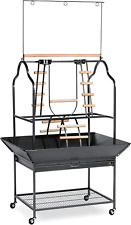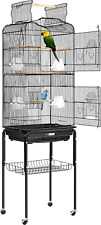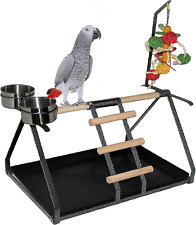Study Shows Most Cats Will Tolerate Wearing a Collar
The study by Ohio State University, titled "Evaluation of collars and microchips for visual and permanent identification of pet cats" and published in the August 15th issue of the Journal of the American Veterinary Medical Association, involved 538 cats with 338 owners. The cat owners were recruited from the colleges of veterinary medicine at Ohio State, the University of Florida, Texas A&M University and Cornell University. Cats in the study were then randomly assigned to wear one of three types of collars: plastic buckle collars, buckle collars designed to detach if they become caught on something, or elastic stretch safety collars.
Of the 538 cats, a total of 72.7% wore their collars for the entire six-month study period, and owners of cats that failed to continue wearing their collars reported that they either lost it (7.1%), scratched at it excessively until the owner removed it (4.8%), or the collar kept coming off and the owner chose not to replace it (3.3%). An additional 1.5% reported that the collar got stuck on the cat’s mouth or another object. A total of 333 cats wore their collars without incident for the entire six month period.
The study authors suggest that the cat owners’ perception of how well their cat would tolerate wearing a collar had a predictive effect on the outcome for each cat. For example, cats were significantly more likely to fail to wear a collar for six months if their owners did not expect them to accept it. However, this might ignore the fact that owners often have a very good understanding of their cat’s behavior and tolerance levels.
"Part of the success of a cat wearing a collar is the expectation of the owner. For some owners, if a collar came off once, they were done. Some put the collar back on their cat five or six times. For the Houdini cat that can constantly get the collar off, it may just not work for them. A cat can also lose a collar, and then an owner has to decide whether to replace it," said Linda Lord, assistant professor of veterinary preventive medicine at Ohio State University and lead author of the study.
In conclusion, the study noted that more than half of cats tolerated their collars better than their owners expected and only 8% of owners said their cats behaved worse than expected. In response to the fact that in some cases the collar got stuck on the cat’s mouth, forelimb or another object, Lord said she would make the argument that a cat is much more likely to get lost and not be recovered than it is to injured by a collar.














